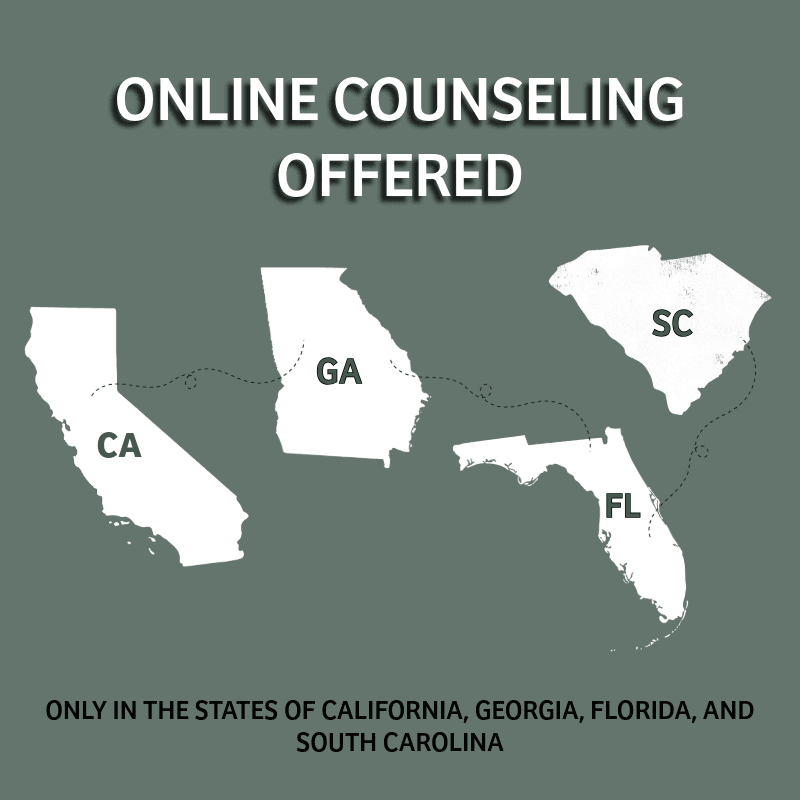By Krista Clark, LMFT, Marriage and Family Therapists with JCAC
Feelings are for Feeling
If you’re anything like me, you’ve felt every emotion there is to feel over the fast couple on months. Anxiety, sadness, grief, gratitude, joy, anger, boredom, overwhelmed, peace. These feelings have all been visitors of mine and I would imagine in one way or another, they’ve paid you a visit too.
Emotions can feel messy because they rarely come one at a time, and they sometimes show up uninvited.
While some emotions may feel uninvited, they’re never there by accident. In fact, our emotions are highly intelligent and functional, and therefore cannot be random. Our brain is far too risk adverse to feel things randomly. I tell my clients often, “no one has ever felt a wrong emotion.” Because of our need for safety, we often to work to create a semblance of control, and one of the ways we do this is by labeling. We do this with emotions by labeling them as “good” or “bad”, when the reality is that they’re neither; they’re neutral.
Emotions are messengers, but we rarely slow down to listen to what they have to say.
The metaphor of emotions as visitors is helpful and comforting to me because by definition, visitors don’t stay forever. They come and go, some stay longer than others, some are more welcome than others, but they all have a reason for being there. When the reason is unclear, get to know the emotion. Sit with it. Get to know it better. If you’ve ever been in therapy for any length of time, you’ve probably heard your therapist talk about “sitting with your emotions”, but what does that mean? How do you do that?
Here are some helpful tips.
1) Name the emotion. We “name to tame”. The moment we can name what it is that we’re feeling, it already gets smaller. It’s no longer this unnamed thing and can begin to untangle it. When we name something, we can begin to understand it, and what we understand, we can change.
2) Identify where you feel it in your body. Our emotions come with physiological responses. They’re called feelings because we quite literally feel them. Our breathing and our heart rate are two of things we may notice first when we’re feeling something strongly. Our face may turn red, we may grind our teeth, we may cry. When we’re stressed, our body releases stress hormones (cortisol, adrenaline, norepinephrine) that are helpful in small doses, but can cause health issues when continuously released. This is one of the many ways that our physical health and our mental health our interrelated. It may be necessary to take some deep breaths during this process to help regulate your emotions.
3) Get to know it. Ask it why it’s visiting and explore what its function may be. What does it want you to know? Consider how you feel toward it. If you can, have some gratitude for it’s visit. Slow down, get quiet and sit with your present experience without judgment. Don’t push your emotion away – acknowledge it. Be kind to yourself throughout this process remembering that you were a human that was meant to feel.
Key Point
Our instinct in the midst of discomfort it often to numb or suppress. It’s important to remember that when we’re working hard to “not feel” something, that that feeling clearly needs our attention. This shows up in relationships in a myriad of ways, but the first that comes to mind is that when we run away from our emotions it creates distance in our relationships. Getting in touch with our inner world is important not only so we can have a greater understanding (and hopefully compassion) for our emotions, but also so can share our most authentic selves with those that matter most. Feelings are for feeling and the only way to work though them is to feel your way through them. If there was a hack or a shortcut, believe me I’d share it, but this way really is the healthiest and it’s worth every bit of the discomfort.
Krista Clark is a Licensed Marriage and Family Therapists who specializes in Couples Therapy, Adult Individual Psychotherapy, and Military Families.
Click Here to schedule a time to speak with Krista
Click Here to learn more about Couples Therapy
Click Here to learn more about Individual Psychotherapy
Click Here to download a free copy of the E-Book series "Finding Calm in the Storm"

Johns Creek and Alpharetta Counseling (#JCAC) is a warm and family orientated counseling practice in Alpharetta, Ga. We offer online counseling services in the states of Georgia and Florida. We offer in-office counseling service at our Alpharetta office which is conveniently located to serve Johns Creek, Milton, Roswell, and Cumming, Ga.
The JCAC Counselors specialize in counseling services throughout the lifespan! We offer play therapy, counseling for children, parental support, adolescent counseling, mental health services, couples counseling, premarital therapy, and individual counseling for adults.
To learn more about our practice, click here!
#JCAC #Anxiety #Depression #Couples #Adolescents #PlayTherapy #Premarital #MentalHealth #Counseling #OnlineCounseling #Alpharetta #JohnsCreek





